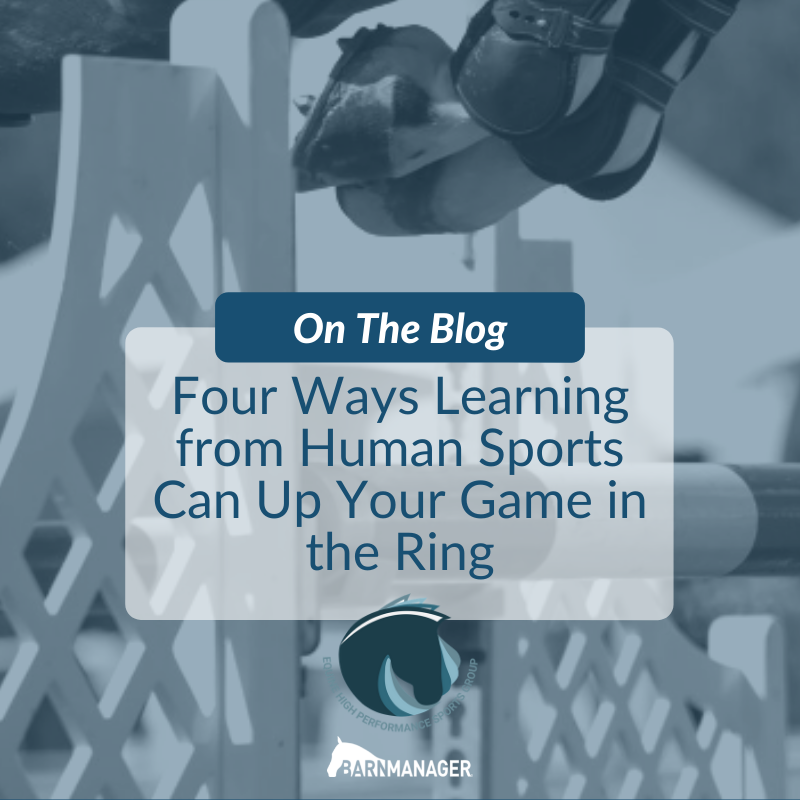
Four Ways Learning from Human Sports Can Up Your Game in the Ring
By Dr. Tim Worden

As equestrians, we know our sport is tremendously different from most other sports out there, and it can be hard to draw comparisons between other athletes and ourselves. However, there is a lot we can learn from other sports to help us gain a deeper understanding of equestrian sports. Like a basketball player or a long-distance runner, horses are incredible athletes, and they need to be cared for as such.
As riders, we are athletes, too, and the way we treat our bodies is equally crucial to top performance. Dr. Tim Worden of the Equine High Performance Sports Group shared with us some of the ways that learning from human sports can help equestrians up our game:
1. Study how other athletes prepare for competition.
Understanding the similarities and differences between how humans and horses prepare for competition gives you a deeper sense of why we train horses the way we do and how you can improve your own methods to benefit the horse. Top athletes don’t skip the most important steps that are beneficial to their health or overall performance, such as rest and proper nutrition. Many professional athletes also take career longevity into consideration, which is a top priority for sport horses. There could be a lot to learn about how they preserve their bodies for the long haul, despite the high level of impact caused by performance.
2. Ask the experts in other sports.
Do you know a college coach or a current or former professional athlete? Ask them for tips on training, recovery, gearing up for competition, and other topics that could be applied to equestrian sports. Learning from human coaches and athletes who have had prolonged success can provide you with new strategies for handling pressure, managing relationships with sponsors, prioritizing health, and more. You can also gather information from a personal trainer, sports therapist, or nutritionist to learn even more about how other kinds of athletes care for their bodies both pre- and post-competition.
3. Do the research.
For every research article examining sport horses there are more than 100 studies published on human athletes. While there are certainly differences between humans and horses, there are also many similarities, so read up on how human coaches apply the latest research to their own athletes to get that winning edge. The Sport Horse Series, presented by the Equine High Performance Sports Group, does just that, pairing renowned experts from human sports with equestrian thought leaders to discuss the application of human sports focused research to equine athletes.
4. Study the change over time.
Human-centric sport training methods have evolved rapidly over the last forty years while some aspects of equestrian training have moved more slowly. By learning from human sports, you can apply some of today’s frameworks to manage equine athletes. Many modern sports medicine practices have resulted in far fewer injuries and have pushed the boundaries of human athletic potential, and the same could be accomplished in equestrian sports.
Learning from the top competitors across various sports is a great way to learn about optimum performance and how it can apply to equine athletes. Look at your favorite athletes from other sports competing at the top of their game. Research how they take care of their bodies, physically, mentally, and emotionally before, during, and after competition. While equestrian sports may still be its own world with unique practices and methods, all sports have the common goal of healthy, top-performing athletes.
If you want to learn more about the parallels between human and equestrian sports, and learn about applying the research and methods from human sports to equine sports, check out the library of courses in the Sport Horse Series. And be sure to follow the Equine High Performance Sports Group as they announce new topics, new speakers, and new discussions each month.